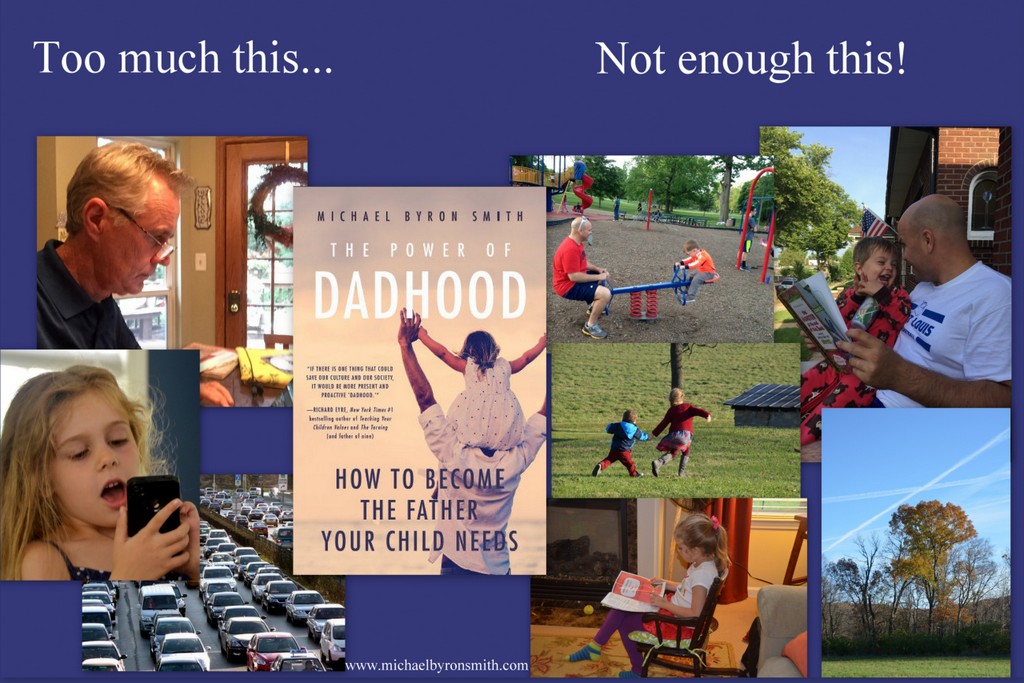There are few of us that ever escape to the quietness of a book or the serenity of a meadow or stream. Only 30% of the population reads books and less are likely to take a ride in the country like we did when I was a kid. The mind requires stillness at times to keep up with itself. I tell myself that every day, but instead I think I need to write another article for my blog! Or I have to do something to promote my book! Or I have to fix this or that. I need to help with my grandkids, answer an email, clean the garage, and declutter the house….whew! How can I take time out to chill?
This is not only true for you as a parent, but for your kids. They need time to read and play. But often parents are rushing them from one activity to another. From work, to home, to the ball field, to the smartphone, to piano lessons, to fast food-to bills, to bed, to a few hours of sleep, and then do it all again. For twenty three years, I also spent 15-20 weekends a year serving in the Air National Guard. It’s likely you have commitments on the weekends also! When is there time to teach, mentor and connect?
Too much information--which is too readily available on today’s technical devices is stealing our imaginations and self-identity. Unfortunately, most of us also choose trash information when there is so much valuable information that is available. Those of us that are old enough remember the relatively simpler times that allowed for more time between activities and protection from the blast constant awareness of information, most of which is useless to us. Our children think this lifestyle is normal—and for them it is! Yes, it sounds like the good old days (only 20-30 year ago) were better. Not true regarding choices and technology, but certainly true if you consider simplicity as better for the psyche.
If you have values you want to teach your children, you now have competition. They listen to friends who are influential. Nothing new about that but what they say is often mistranslated or misunderstood and what our friends think they know has exploded. The Internet has views your children hear that you can’t counter if you are unaware of what they are watching or reading. Standards of conduct are devalued and indecency sells, making it more prevalent and numbing to the senses.
Children’s dependency on their parents is nothing like it used to be. To make the point, parents used to teach their kids how to build a barn or sew a dress. Now kids teach their parents how to set up a wireless network or how to do ‘FaceTime’ or use ‘Pandora”. This switch takes away the ‘awe’ kids had for their parents. Less awe means earning more respect from them. How do we do this?
This all may be at its worse in the United States.
From, “The Power of Dadhood: Be the Father Your Child Needs”
In February 2007, the United Nations Children’s Emergency Fund (UNICEF) released a report that said, among the twenty-one wealthiest nations, the United States was the worst place to raise a child. The United States ranked low on the scale regarding children who eat and talk frequently with their families and had the highest proportion of children living in single-parent families. Single-parenthood was associated with “a greater risk of dropping out of school, of leaving home early, of poorer health, of low skills, and of low pay.”
Conversely, the study revealed that children in the Netherlands, Spain, and Greece “were the happiest,” and children of the Netherlands, Spain, and Portugal “spent the most time with their families and friends.” The evidence in the Netherlands and Spain supports the obvious: children’s welfare—their health and happiness—is greatly enhanced by involvement with those they love.
A partial explanation of the report’s low ranking of the United States is the competitive nature in the job market, making adults less available to their children. Jonathan Bradshaw, one of the authors of the study, stated, “The findings we got today are a consequence of long-term underinvestment in children. They [the United States and also the United Kingdom, which ranked next to last] don’t invest as much in children as continental European countries do.” (Farley)
When economic conditions weaken, parental attention suffers as fathers and mothers look for work or struggle to make ends meet. Men’s competitive nature to get work trumps their nature to nurture.
Summary
The purpose of this article is awareness. If your children are swaying from your standards and desired direction, look to these as a few of the reasons.
- Lack of one-on-one time with parents.
- The availability of technology and the information, good and bad, therein.
- The abundance of unsolicited opinions of others before your children can determine right from wrong, good from bad, on their own.
- Not enough down time (or too much down time for a few).
- Fewer family times together going to church or grandma’s house.
There have always been factors that change over the years making it tough to parent. Some core factors remain from generation to generation, but other challenges appear. The challenges of today are tough because they test a parent’s influence. Respect and social standing of parents with regard to their children is being tested. We as parents must endeavor to keep up with our children both socially and technologically! Good luck!






